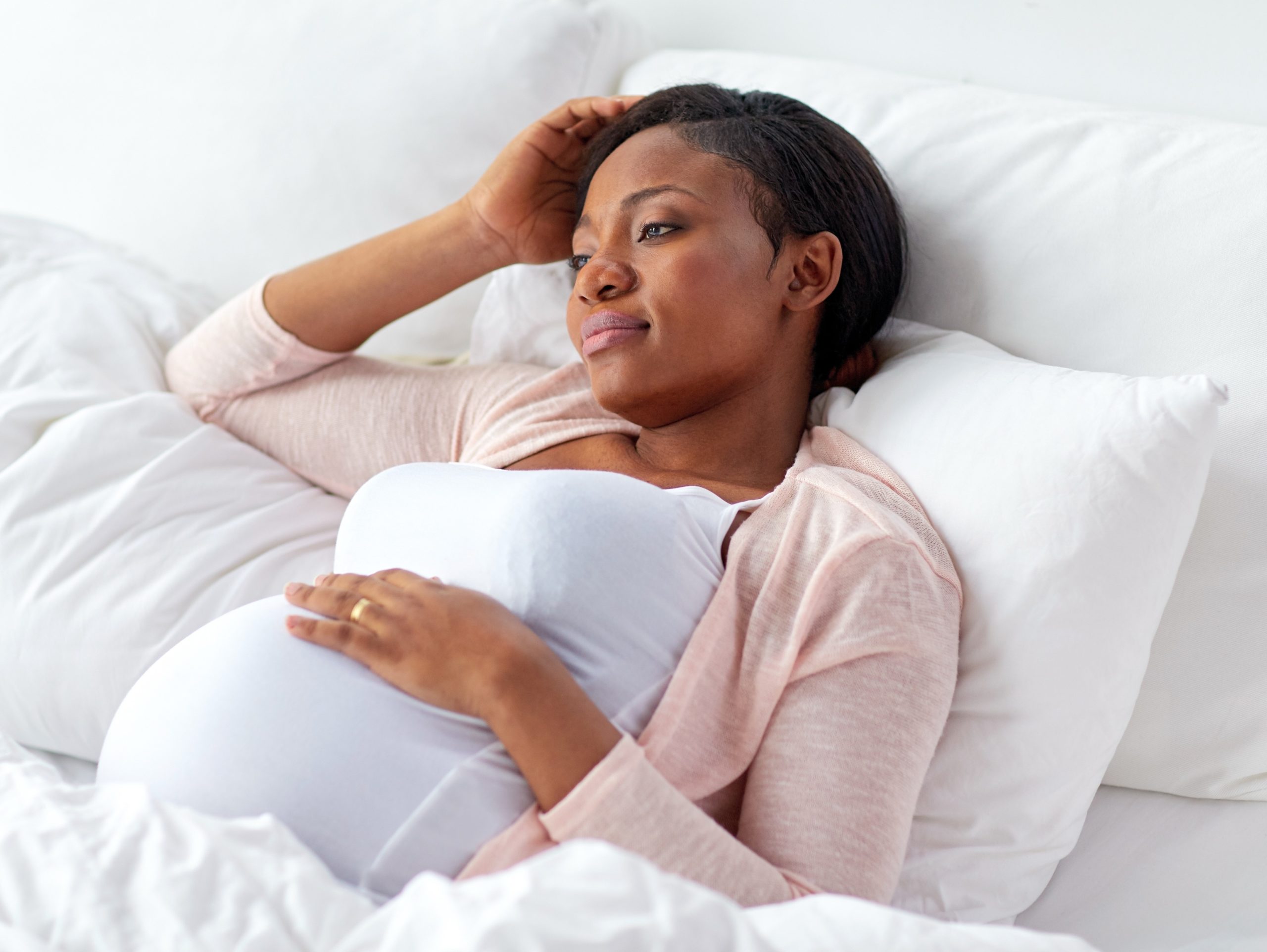Prenatal exercise guidelines around the world recommend that those with uncomplicated pregnancies engage in regular physical activity before, during, and after pregnancy due to the substantial benefits of exercise during pregnancy. However, there are some individuals who are advised against exercise due to various pre-existing or pregnancy-specific conditions, known as contraindications. These “high-risk” individuals are often prescribed a severe form of sedentary behavior, known as bed rest.
However, new research published in 2020 in the British Journal of Sports Medicine is challenging these guidelines. This research reveals some surprising information about how the contraindications were developed in the first place, and the lack of empirical evidence demonstrating harm of exercise or benefit of activity restriction in those with these conditions. Read on to learn what the data has shown, and why the researchers are calling for a re-evaluation of the clinical guidelines related to prenatal exercise contraindications.
Background on Contraindications
Medical guidelines classify prenatal exercise contraindications into two categories:
- Absolute Contraindications: Those conditions for which exercise is NOT permissible under any circumstance.
- Relative Contraindications: Those conditions where the benefits of exercise may outweigh the risks, and therefore exercise may be possible with potential modifications. Must be discussed with doctor.
To see a full listing of all conditions that are currently classified as one of these, see the table on page 2 of this study showing absolute and relative contraindications from around the world. To see the U.S. classifications, look at the ACOG column.
The surprising information is in how these contraindications were developed. Most of these conditions were based on “expert opinion” and not empirical evidence. Moreover, there is no evidence demonstrating that doctors banning exercise in individuals with these conditions improves pregnancy outcomes (Meah, Davies, & Davenport 2020). Experts believe many of these guidelines are outdated in light of new research on the wide-ranging benefits of prenatal exercise.
Background on Best Rest for Contraindications
As mentioned above, often those individuals who have contraindications are prescribed a severe form of sedentary behavior, known as bed rest. However, data from comprehensive meta-analyses have shown no benefit of bed-rest on pregnancy outcomes and an increased risk of preterm birth when prescribed to women in developed countries.
The latest 2020 Guidelines from the American College of Obstetricians and Gynecologists (ACOG) echo the cautionary message on bed rest, stating that “there are no studies documenting an improvement in outcomes in those at risk for preterm birth,” or a “reduction in preeclampsia risk and its complications.” There are, however, multiple studies documenting negative effects of prolonged activity restriction, including a greater risk of venous thromboembolism, bone demineralization, deconditioning, and psychological complications (ACOG 2020).
Despite the lack of efficacy and severe health risks of this practice, up to 87% of physicians in North America still prescribe bed rest for high-risk pregnant people for lack of a better therapeutic option. Even more concerning is that the majority of physicians prescribing bed rest do not provide any recommendations of rehabilitative exercise, which may alleviate some of the negative side effects of activity restriction (Meah, Davies, & Davenport 2020).
New Recommendations for Contraindications
After an in-depth review of literature and evidence to date, researchers in the British Journal of Sports Medicine article identified 11 conditions where there is absolutely no evidence to support stopping prenatal exercise. In fact, becoming completely inactive could result in increased risk of adverse pregnancy outcomes. Therefore, the researchers are recommending the following conditions be removed as contraindications.
- Chronic or gestational hypertension
- Overweight/obesity
- Recurrent miscarriage
- Short cervix
- Multiple pregnancies
- Epilepsy
- Anemia
- Orthopedic limitations
- History of extremely sedentary lifestyle
- History of spontaneous preterm labor or fetal growth restriction
They also identified 10 conditions currently listed as absolute contraindications that they believe should be re-classified as relative contraindications due to the benefits of exercise likely outweighing the risks. Individuals with these conditions would need to speak with their doctors, and certain modifications may be advised.
- Mild respiratory disorders
- Acquired or congenital heart disease with exercise tolerance
- Mild pre-eclampsia
- Well-controlled type 1 diabetes
- Preterm premature rupture of the membranes
- Placenta previa after 28 weeks
- Untreated thyroid disease
- Severe and symptomatic eating disorders
- Undernutrition
- Heavy smoking in the presence of comorbidities
New Bed Rest Recommendations
The researchers were supportive of some conditions remaining as absolute contraindications (severe respiratory disorders, severe acquired or congenital heart disease with exercise intolerance, placental abruption, vasa previa, uncontrolled type 1 diabetes, intrauterine growth restriction, active preterm labor, severe pre-eclampsia and cervical insufficiency). However, they believe pregnant individuals with these conditions should maintain activities of daily living where possible, as per evidence showing the adverse effects of complete bed rest in pregnancy.
What This New Information Means for YOU
The bottom line is that current guidelines were based on “expert opinion” (not empirical evidence) and may be outdated with the emergence of new research. Therefore, if your doctor gives you any sort of exercise restriction, always ask WHY. Depending on the response, you may need to ask further questions, or even seek out a second or third opinion, especially if your doctor prescribes bed rest.
Want Additional Resources?
For additional resources to help you exercise safely and effectively during pregnancy, explore our training programs and services. You’ll find a variety of offerings tailored to different needs — from education, to self-guided programs, to the ability to work with an expert coach.
Or, if you’re a health & fitness pro interested in coaching pre & postnatal clients, check out our ProNatal Education & Certification.
Sources:
ACOG Committee Opinion number 804. Physical Activity and Exercise During Pregnancy and the Postpartum Period. April 2020.
Meah, V., Davies, G., Davenport, M. (2020). “Why can’t I exercise during pregnancy? Time to revisit medical ‘absolute’ and ‘relative’ contraindications: systematic review of evidence of harm and a call to action.” British Journal of Sports Medicine. June 8.
